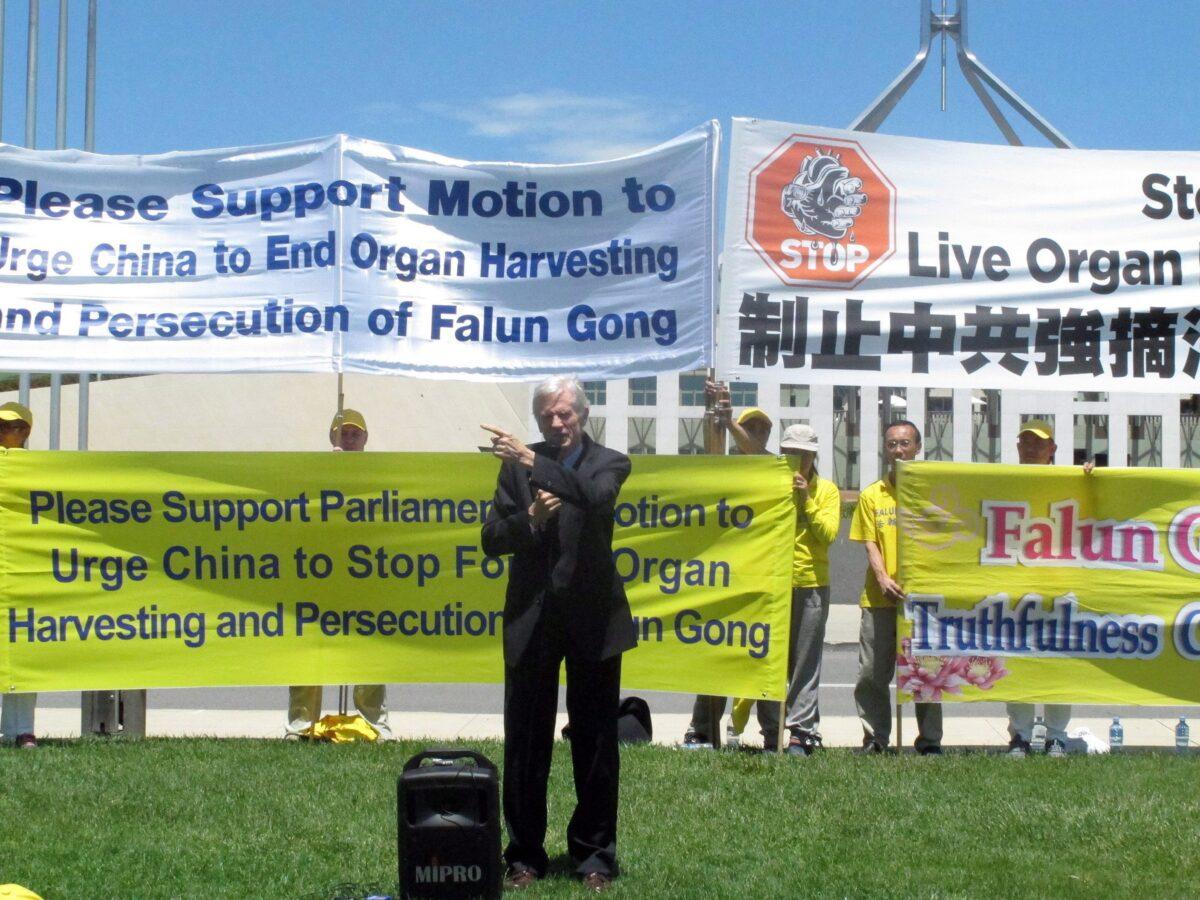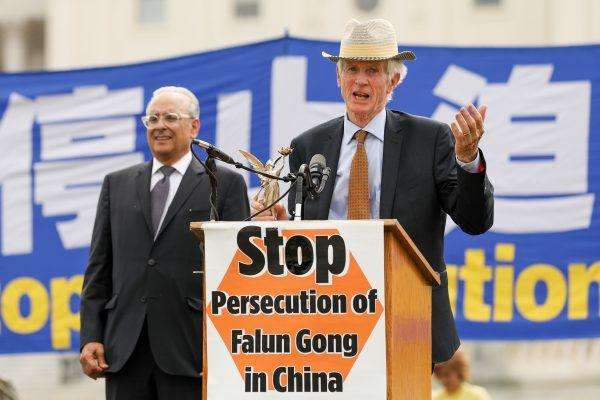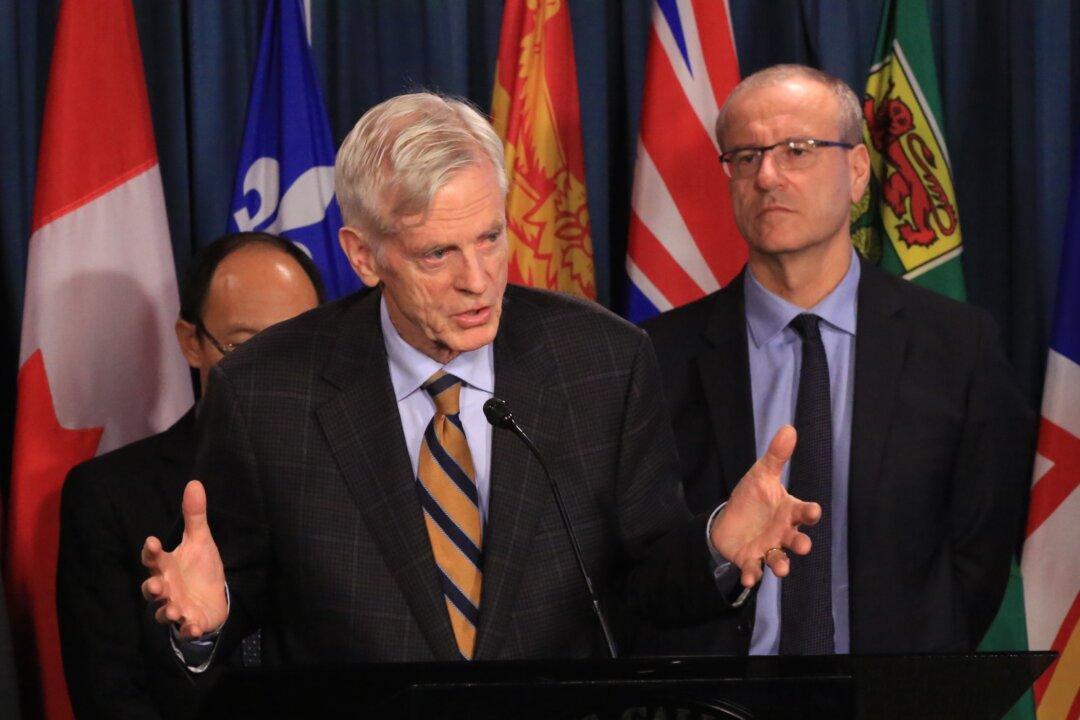Kilgour, who had a long career in politics, passed away on April 5 from a rare lung disease. He was 81.
“This horrific practice was first brought to light by former member of Parliament David Kilgour,” said Conservative MP Pat Kelly. “It is a shame that he did not live to see its passage, but I certainly hope that this bill will pass.”

‘Incredible Legacy’
In the last Parliament, S-204 got the unanimous support of the Senate, but before it had a chance to be fully voted in in the House of Commons, an election was called and Parliament was dissolved.
There were several previous attempts to pass similar bills as private member’s bills, but they all died when Parliament was dissolved due to an election being called.
On April 6 and 7, 13 Conservative members tabled the petition and encouraged the passage of the bill.
MP Garnett Genuis, who has introduced Senate bills on organ trafficking to the House in previous parliaments, took the opportunity to recognize Kilgour’s work.
“I join colleagues on all sides of the House in recognizing the incredible legacy of David Kilgour, who passed away this week,” Genuis said.
“David brought this issue to my attention and to many people’s attention. He, along with David Matas, wrote the initial report on this issue. He has been a tireless champion on it and on so many other human rights issues as well.”
MP Damien Kurek said: “This bill has passed the Senate unanimously three times, and MPs from multiple parties have put forward a form of this bill over the past 13 years. The petitioners are hoping that it can be this Parliament that gets it done.”
In urging the passage of the bill, MP Stephen Ellis said that as a former family physician, the legislation strikes “the heart of the matter for me,” and said Kilgour was “a great champion not only of this issue but of other human rights issues.”
‘Maverick With a Cause’
On April 7, Liberal MP John McKay also paid tribute Kilgour in the House, noting to his former colleague’s passion for human rights, unyielding independence, and strong faith.“He had little or no time for the compromises of politics, or prime ministers or party leaders. If a government hung in the balance over Darfur, so what? If he was banned by the government of China for advocating on behalf of the Falun Gong or the Uyghurs, so what?”

He joined the Liberals in 1992 and served as secretary of state to Latin America and Africa from 1997 to 2002, and as secretary of state to the Asia-Pacific region from 2002 to 2003 during the government of Jean Chrétien.
In 2005, Kilgour left the Liberal Party over disagreements on principle and sat as an independent MP. He retired from politics in 2006.
“Nowhere is our foreign policy vacuum more evident than in Sudan, where more than 300,000 civilians have already perished in a disaster Romeo Dallaire has described as ‘Rwanda in slow motion,’” he wrote.
Months after Kilgour’s call for action, the government of Paul Martin sent humanitarian aid to Sudan.
McKay said Kilgour’s dedication to human rights causes was backed by such courage and conviction that it spurred others to follow suit.
“David’s passion was so strong and his advocacy so effective that it was ultimately taken up by many others,” he said.
He said while Kilgour can be described as a “a maverick with a cause,” he also knew how to bring people together to “move agendas.”
“David lived by Matthew 22: ‘Love the Lord your God with all your heart, soul and mind,’ and ‘love your neighbour as yourself,’” he said.
“David had a diverse set of neighbours, and he loved them all.”





